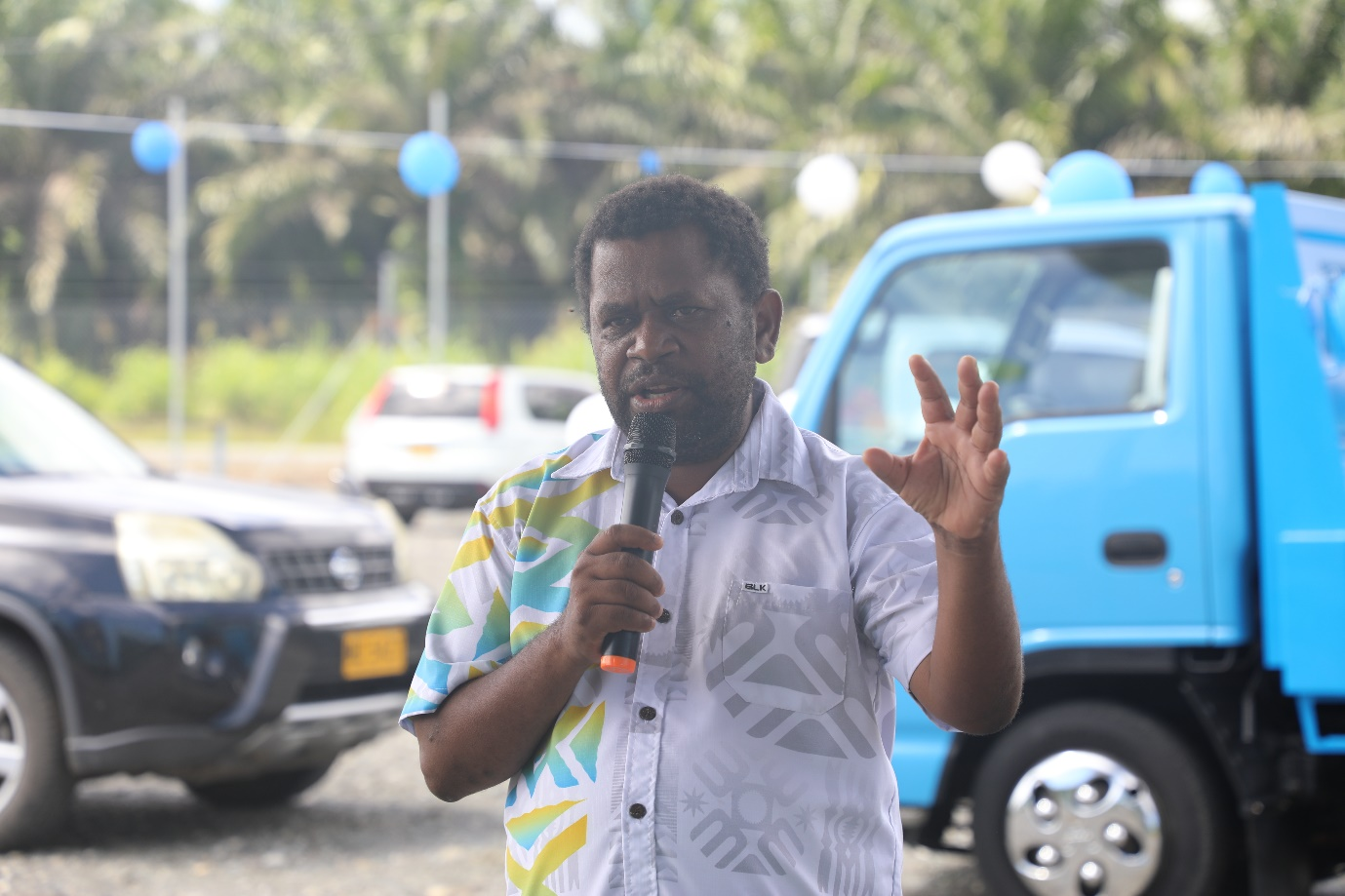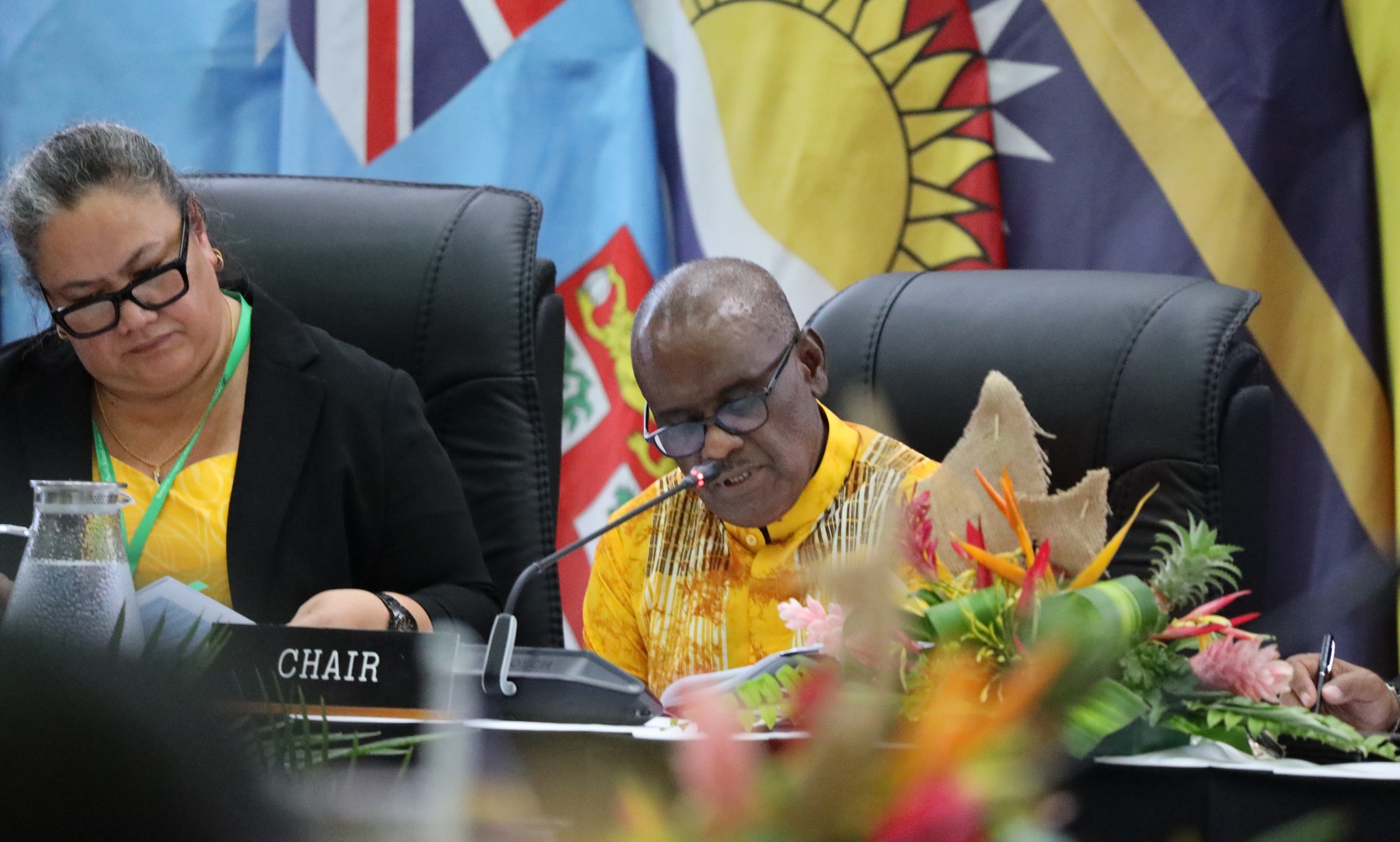PACIFIC trade and economic leaders have called for urgent, collective action to address the complex and escalating challenges facing the region’s economies, including rising protectionism, climate shocks, and growing geopolitical instability.
Speaking at a high-level regional meeting, Secretary-General of the Pacific Islands Forum, Baron Waqa, highlighted the mounting pressures threatening livelihoods, fiscal stability, and long-term growth prospects of already vulnerable Pacific nations. “Since you last met, the global trading environment has become even more complex. From rising protectionism and trade wars to climate shocks and geopolitical instability, our region is absorbing increasing external pressures,” he said.
Leaders emphasized that a coordinated regional response is now essential. “Regional economic integration is not an abstract goal. It is the most viable pathway to resilience. This is the central premise of the 2050 Strategy for the Blue Pacific Continent: together, we are stronger in protecting our development space and building shared prosperity,” Waqa highlighted.
Waqa also mentioned in his remarks that the Pacific Roadmap for Economic Development (PRED), endorsed at the Special Forum Economic Ministers Meeting in March, was a key instrument to realize this vision. The plan focuses on strengthening trade infrastructure, supporting private sector development, and enhancing the region’s position in both regional and global markets.
Looking ahead, ministers reviewed the proposed successor to the Pacific Aid-for-Trade Strategy for 2026–2030. If adopted, it will build on existing foundations to support Forum Island Countries in expanding market access and participating more meaningfully in global value chains. The strategy aims to equip nations with the necessary tools, resources, and technical support, calling for “discipline, coordination, and measurable outcomes” in its implementation.
He said multilateralism was described as central to the Pacific’s economic agenda, with the World Trade Organization (WTO) providing a crucial—if imperfect—platform to amplify regional voices. Forum leaders called for urgent WTO reform to ensure that rules reflect the unique needs and vulnerabilities of the Blue Pacific, support sustainable fisheries, enable digital trade, and provide flexibility for economic transitions.
Regional trade arrangements, including PACER Plus and the Pacific Island Countries Trade Agreement (PICTA), were identified as important vehicles for deeper cooperation, regulatory harmonization, and trade facilitation. Officials urged member states to fully leverage these platforms through clear national and regional commitments.
Key topics on the meeting agenda included labor mobility, the proposed Kava Declaration, fisheries subsidies, digital readiness, and private sector resilience.
Waqa stressed that all issues must be addressed through strategic regional cooperation, warning against siloed approaches and calling for “coordinated actions with clear priorities, backed by political will and technical execution.”
He expressed gratitude for the ongoing guidance and support of Pacific ministers, reiterating their commitment to ensuring that the regional trade agenda delivers practical benefits for communities across the region.
“We look forward to fruitful and results-oriented discussions and stand ready to further assist in these important deliberations,” Waqa concluded.












